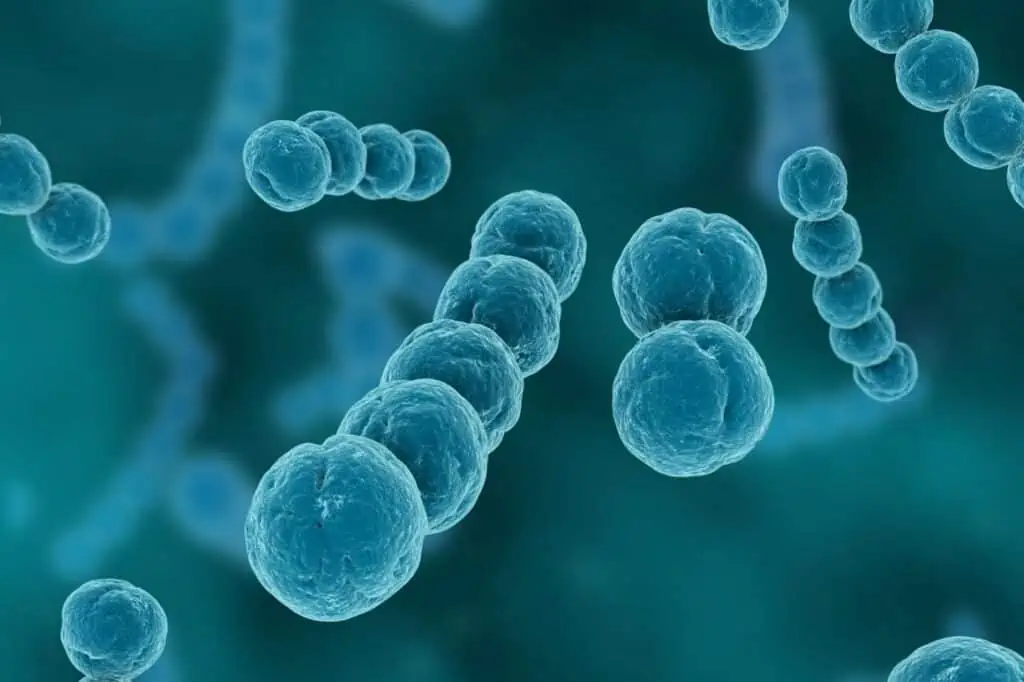Biochemistry and Molecular Biology are two interesting scientific fields that take an in-depth look into life’s puzzles at the molecular level.
Both branches analyze the complexities of biological processes, but a difference exists in their applications, approaches, and topic interests.
While Biochemistry is the utilization of chemical understanding for biologically important molecules, Molecular Biology is the molecular examination of biological processes.
The latter deals with a tiny chunk of biology and genetics, while the former merges knowledge from chemistry and biology. This article highlights the lines that separate these illuminating fields and the dots that connect them.
What is Biochemistry?

What Biochemistry does is study the chemistry of life on Earth. Simply put, studying chemical processes within living organisms and molecular communication regulates life’s basic functions.
Biochemistry concerns itself with the molecular foundation of life. It seeks to make sense of the structure, function, and regulation of biomolecules that promote important biological functions. These biomolecules include proteins, nucleic acids (DNA and RNA), lipids, and carbohydrates.
Now, Biochemists analyze how these biomolecules cooperate in complex pathways to preserve cellular integrity. This is shown, for instance, in the ability of proteins to act as enzymes and/or catalysts that aid key biochemical reactions in the cell.
DNA and RNA also store and transfer genetic information, promoting living organisms’ growth, development, and reproduction. Apart from forming cell membranes, lipids are efficient energy reservoirs, while carbohydrates deliver energy for different cellular processes.
Understanding Biochemistry is indispensable to diverse disciplines, including medicine, biotechnology, genetics, and nutrition. For drug discovery, Biochemistry remains vital, contributing tremendously to the development of targeted therapies in treating diseases.
When it comes to genetics, Biochemistry demystifies the molecular basis of inherited traits and genetic diseases. The knowledge of Biochemistry can also be brought to bear in the engineering of genetically modified organisms and the production of biopharmaceuticals.
Biochemists leverage various experimental techniques such as spectroscopy, chromatography, and genetic engineering to navigate the intricacies of biomolecules.
What is Molecular Biology?

Molecular Biology is a branch of Biology with a special focus on studying biological macromolecules, especially DNA, RNA, and proteins, and how they communicate to regulate life’s fundamental processes.
At the center of molecular biology lies an elemental principle known as Central Dogma. It explains the movement of genetic information in cells.
The Central Dogma describes DNA as the genetic blueprint that encodes instructions for synthesizing RNA molecules. As a result, RNA molecules function as messengers that transmit genetic information from DNA to ribosomes, where they stimulate the synthesis of proteins.
Different parts of these processes are what molecular biologists study. They find out how genes are regulated and establish when and where what gene is expressed.
Molecular biologists seek to understand the molecular basis of genetic disorders, uncovering mutations that cause diseases. Molecular biology is vital in understanding cell development, differentiation, and cellular responses to external stimuli.
Innovations in molecular biology have changed the game in biotechnology. Genetic engineering is one of the methods responsible for this development, and so is gene editing with its CRISPR-Cas9, which has allowed scientists to modify DNA sequences accurately.
The results of developments like these are all over the place in Medicine, Agriculture, and Environmental Science.
Polymerase chain reaction (PCR), gel electrophoresis, macromolecular blotting and probing, microarrays, and allele-specific oligonucleotides are other key techniques in molecular biology.
The study of genomics is another realm where molecular biology finds crucial use. Here, whole genomes are examined to comprehend gene functions, evolutionary relationships, and the genetic basis of diseases.
Difference Between Biochemistry and Molecular Biology
While Biochemistry and Molecular Biology could be closely related disciplines, differences still exist between both.
Below are ways in which they differ.
Definition
Biochemistry, as a branch of science, deals with the chemical and physicochemical processes and substances taking place within living organisms.
On the other hand, molecular biology is a branch of Biology concerned with the structure and function of macromolecules, like proteins and nucleic acids, integral to life. This is what forms the primary distinction between both disciplines.
Sub-Disciplines
Molecular genetics, protein science, and metabolism are the three sub-disciplines of Biochemistry, while Molecular Biology is a specialist branch of the former.
Biomolecules
Biomolecules also draw a line between Biochemistry and Molecular Biology. The former deals with proteins, nucleic acids, lipids, and carbohydrates, while the latter focuses on nucleic acids and proteins.
Study Materials
A difference can be made from the things they both require for study. Biochemistry uses known products of unknown genes, while Molecular Biology uses known products of known genes.
Techniques
Biochemistry utilizes protein purification, chromatography, homogenization, centrifugation, enzyme assays, perfusion, protein assays, protein crystallography, and kinetics.
Molecular Biology, on the other hand, uses Polymerase Chain Reaction (PCR), gel electrophoresis, macromolecular blotting and probing, microarrays, and allele-specific oligonucleotides.
All of these constitute remarkable differences between Biochemistry and Molecular Biology.
Biochemistry vs Molecular Biology: Similarities
- They both find medical applications and are instrumental in studying disease mechanisms and producing precise cures.
- Both disciplines take an in-depth analysis of enzymes, which play essential roles in catalyzing chemical reactions.
- They study cellular processes such as metabolism, signaling, and DNA replication.
- Biochemistry and Molecular Biology both demonstrate structural biology. This means they study the three-dimensional structure of biomolecules to have a solid grasp of their functions.
- Both fields have significant biotechnological contributions as they play roles in genetic engineering, gene editing, and the production of biopharmaceuticals.
- They use biomolecules such as proteins, nucleic acids, lipids, and carbohydrates to make sense of cellular operations.
- Significantly, both Biochemistry and Molecular Biology aid the understanding of various life processes at the molecular level, resulting in many remarkable improvements in human healthcare and environmental preservation.
Which is Better?
Summarily, Biochemistry and Molecular Biology share several things. They both examine life in its elemental form.
That said, they are not entirely similar, and if you are considering one of the two, it is best to pick one that catches your fancy and fits in with your career goals.
If you are fascinated by biomolecules and the chemical reactions that make and shape life, Biochemistry could be your guy. And if genetic information makes a lot of sense to you, a degree in Molecular Biology may be a nice idea.
Both disciplines play frontline roles in scientific innovations, promising fulfilling careers in diverse industrial and academic fields.

Sam is a brilliant young Nigerian biochemistry student and an aspiring entrepreneur. Despite facing many challenges, he has never lost his passion for learning and drive to make a difference in the world. Read more about him here.